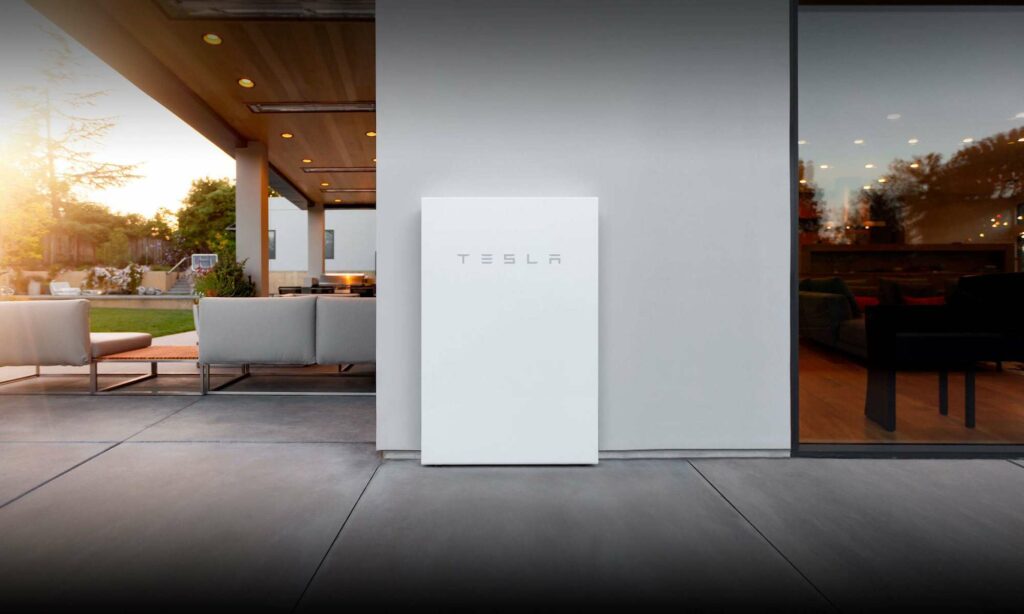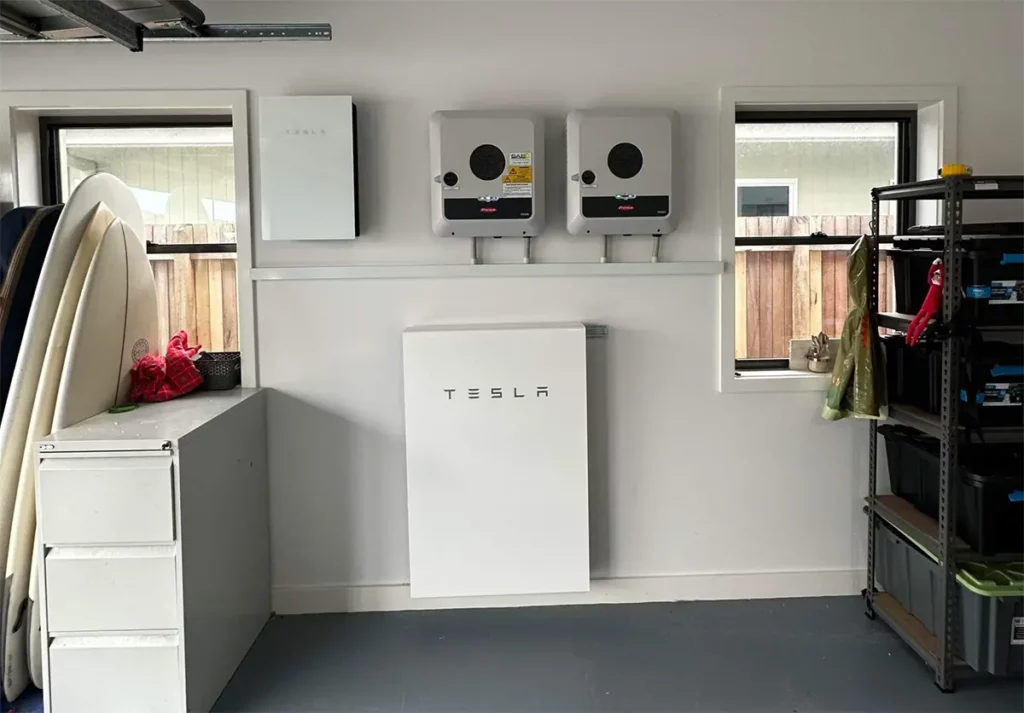So What Exactly Do You Get With Free Smart Meters?
Home » So What Exactly Do You Get With Free Smart Meters?
Solar Battery Storage & Free Smart Meters are the Solar Buzzwords for 2016
If you are one of the 130,000 NSW households that were ahead of the game and had installed solar with a 60¢ Feed-In-Tariff you will by now have heard of the “Free Smart Meters” on offer from some energy providers. Other energy providers are offering negotiated rates and including them in new contracts to avoid paying the $600 install costs and avoid a spike in your power bills at the end of 2016.
The looming “bill shock” is due to the closure of the solar bonus scheme, under which households with solar panels can sell electricity back to the grid at a rate of either 60¢ or 20¢ per kilowatt hour. The change over requires a Smart meter to enable you to switch from gross metering (the current situation) to net metering, so you can potentially power your household with solar panels and sell any excess back to the grid.
These changes are coming into effect due to the belief that battery storage will trigger a new wave of rooftop solar PV installation in Australia. Origin Energy has said it believed it was in a position to take advantage of solar and storage, with the changing energy mix as coal retired and more renewables were installed. Origin Energy (while making solar and storage offerings to you the consumer and moving into the energy services business) have also stated they are not expecting battery storage to deliver short paybacks anytime soon. However after a lot of market research here at SAE group we are now able to offer cost effective battery solutions. You can read more about those exciting options here. We will be discussing “Solar Battery Ready” systems versus “Solar Battery Compatible” Systems in our next blog due to the current cost of a Solar Battery Storage System”.So how does this impact on you and what is the point of changing to a Smart Meter?
So how does this impact on you and what is the point of changing to a Smart Meter?
What is a smart meter?
 A smart meter is an electricity meter that measures and records your electricity use at different times of the day. A smart meter records electricity use every half hour and gives you more information about the way you’re using electricity. This gives you better information and allows you to make more informed decisions on the use of electricity in your home.
A smart meter is an electricity meter that measures and records your electricity use at different times of the day. A smart meter records electricity use every half hour and gives you more information about the way you’re using electricity. This gives you better information and allows you to make more informed decisions on the use of electricity in your home.Gross Vs. Net And Smart Meters
While a gross meter records all solar production as an export to the grid, a net meter only records the excess, enabling solar electricity to offset any expensive grid power consumption. This means a household no longer receiving the Solar Bonus Scheme rate, can get far better value from the solar electricity generated.
A smart meter also offers advanced features; recording consumption and production of electricity at regular intervals (e.g. 30 minutes) and communicating that information back to the electricity retailer for monitoring and billing purposes.
Most newer smart meters can be configured to work in either net metering mode or gross metering mode. Most energy retailers are offering to change old meters on an opt-out basis as part of the NSW smart meter roll-out under the Electricity Supply Amendment (Advanced Meters) Act March 2016.
Smart Meter Benefits
As mentioned above, smart meters provide data that enable customers to make choices about how much energy they use by allowing them to access accurate real-time information about their electricity consumption.
Unlike the old meters they replace, smart meters are up to date two-way, digital communication systems that record electricity usage every 30 minutes and automatically send this data to a customer’s electricity distributor, virtually bringing an end to estimated bills and manual meter readings. This can also allow customers to choose when to receive and pay their bills.
Taking up the option of connecting or disconnecting electricity, switching to a new electricity retailer or feeding electricity back into the grid from your already installed solar panels, are cheaper and easier with a smart meter. You will no longer need to wait for your next scheduled meter reading when switching electricity companies, making services like this quicker and cheaper
What are the roles of the electricity distributor and electricity retailer businesses in relation to smart meters?
Your electricity distributor or a qualified installer such as SAE Group are responsible for installing your new smart meter. Installation of a solar system has typically required you the householder to also arrange for the existing meter to be switched to an “import/export” meter, which then allows excess solar generation to be paid a Feed-in-Tariff (FIT). Before the changes, this meter exchange occurred often weeks after the solar system was been installed, which is a frustrating experience for you, the householder. It has also been at a cost (depending on where in Australia you live) of up to $700 for a simple meter exchange. Finally, the new meter was still a very rudimentary “dumb” meter than needed to be manually read and didn’t provide useful information such as the gross solar generation.
 Your electricity retailer is responsible for billing you for the costs of supplying energy to you. These costs include the cost of generating energy, costs of the infrastructure and services to deliver energy to your premises and the costs for metering. The problem is now Energy retailers such as AGL and Origin have begun offering digital (or “smart”) meters to householders as well as solar installation services, often using sub-contractors and “double-dipping”.
Your electricity retailer is responsible for billing you for the costs of supplying energy to you. These costs include the cost of generating energy, costs of the infrastructure and services to deliver energy to your premises and the costs for metering. The problem is now Energy retailers such as AGL and Origin have begun offering digital (or “smart”) meters to householders as well as solar installation services, often using sub-contractors and “double-dipping”.
AGL began rolling out smart meters and a smartphone app in NSW, South Australia, and Queensland at the start of the year, in a move that was marketed as to better enable “the home energy management ecosystem of the future”. Origin Energy already offers digital meters in areas of NSW, however, an expanded roll-out is planned for coming months.
A spokesperson for EnergyAustralia said consumer surveys had shown customers felt their ability to reduce bills increased when using a smart meter, adding that EnergyAustralia was looking at smart meters among other options to give “NSW customers greater control”.
As more consumers take up the technology, more consumers will take advantage of demand management and programs that automatically regulate appliances when energy conservation or cost saving is required. “It is completely changing the way we think about electricity and power, moving us to a world where we can decide when we want to buy and sell our power,” Mr King said.
If you want to learn more about how these smart meters work, or even want to ensure you have a Solar battery ready storage system, Click below and one of our Solar Energy experts will help you determine, your solar requirements and how to reduce your energy bill.
Click Here For Your FREE Quote







